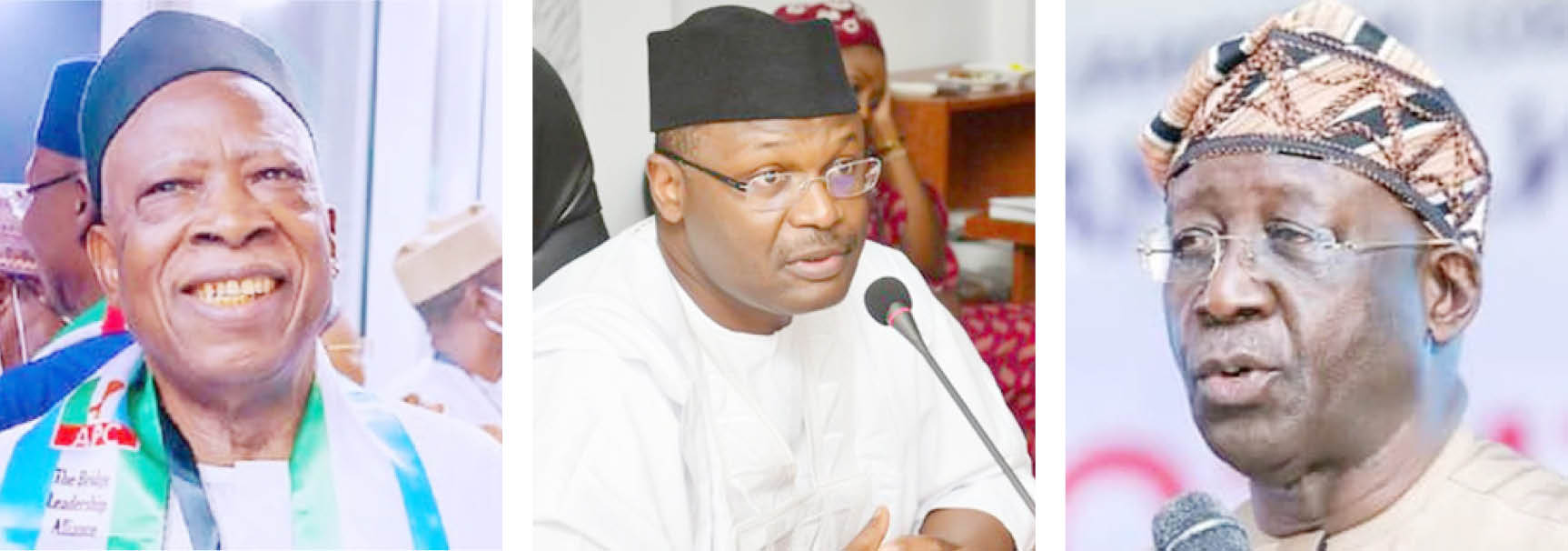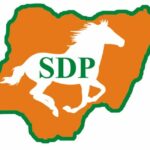Agitation for the not-too-young-to-run law began in May 2016 when a coalition of over 50 civil society organisations led by Yiaga Africa held a conference in Abuja to demand for constitutional amendment to give opportunities to youths to contest for and occupy political positions in the country.
The campaign, which is symbolised by the hashtag, #NotTooYoungToRun, is now being used beyond Africa.
PDP South West Stakeholders reject Makinde’s call for Ayu’s resignation
Okowa’s struggles to rally South behind Atiku
A series of events by the Samson Itodo-led Yiaga Africa and other partners led to the ‘age reduction bill’ sponsored in the House of Representatives by Tony Nwulu and in the Senate by AbdulAziz Murtala Nyako.
The bill sought alteration to sections 65, 106, 131, 177 of the constitution of Nigeria to reduce the age of running for elective positions for House of Assembly and House of Representatives from 30 to 25 years old, Senate and governorship from 35 to 30 years and office of the president from 40 to 30. It also recommended independent candidature.
While the bill was read and passed with votes of 86-10 in the Senate on July 26, 2017, it was read and passed the following day with 261-23 votes in the House of Representatives on July 27, 2017.
Also, to fulfil the constitutional requirement of two-thirds of the state houses of assembly; 33 voted ‘yes’, except Zamfara, Lagos and Kano states.
The bill was initially rejected by the Taraba State House of Assembly but was reversed after the youth movement inaugurated the Taraba House of Assembly into the Hall of Shame like the other three state assemblies.
President Muhammadu Buhari, on Thursday May 31, 2018, eventually signed the ‘not-too-young-to-run’ bill into law inside the Council Chamber of the State House, Presidential Villa in the presence of selected youths across the county.
The new law, however, did not change the age qualification for governorship and Senate; both were retained at 35 years.
The commencement of the activities for the 2023 general elections that led to the announcement of nomination forms for elective positions by political parties led to the youth movement to renew their agitation.
In one of the instances, Yiaga Africa expressed concern over the high cost of nomination forms being charged by political parties in preparation for the 2023 elections.
The executive director of the organisation, Samson Itodo, said the development was a huge disservice to teeming women, youths and persons with disability who nursed the ambition to run for elective offices in next year’s general elections.
“It is imperative to state that this practice does not bode well for Nigeria’s fledgling democracy as it further marginalises women and the youth, two vulnerable groups who make up the largest demography in the country, from participating in the political process.
“The expensive nature of Nigeria’s politics has been established to be a structural barrier to women and youth political participation. Thus, it is saddening to see that political parties, which remains the primary medium for contesting elections in the country, have continued to perpetuate this injustice,” Itodo said.
According to him, with the passage of the age eligibility (not-too-young-to-run) bill into law close to the 2019 general elections, it was envisaged that young people would take advantage and contest for office en-masse in the 2023 general elections as this would give them ample time to prepare for the elections.
He said, “However, going by the high cost of nomination forms that have been announced so far by some political parties ahead of the 2023 elections, it is safe to say that this is a deliberate attempt to marginalise women, youth and persons with disabilities and discourage them from participating in the political process as candidates in the forthcoming general elections.
“It is no news that these marginalised groups are economically disadvantaged to compete fairly with the old guard, who have accumulated resources to be able to afford the cost of running for various offices.”
While noting the concessions made by some political parties to women, the youth and persons with disabilities, he also called for a further downward review of the cost of nomination forms to allow for an inclusive process without discrimination to any group or demography of the society.
Speaking on the development, a public commentator, Ezinwanne Onwuka, said the thorny point was that Nigerian youths did not need a sense of entitlement legislation to be allowed to ‘run’ for elections in their own country.
He said the not-too-young-to run law was only a facade that masked the sour issues at the heart of retrogressive politics in Nigeria.
“This includes fundamental issues like money politics, godfatherism, election malpractices and corruption, as well as the dysfunctional structures of the country’s democratic amalgam and the lopsided economic disparity between the mighty old ruling class and the deliberately pauperised youths by the same criminal political elite.
“The law is a welcome development, however, it remains a pyrrhic victory for the youths until the political space is made fair and open enough to build and support young people, helping them to run and actually get elected,” Onwuka said.
Also, the representative of Kwara Central in the Nigerian Youth Parliament (NYP), Fifth Assembly, Ibraheem Abdullateef, urged the leadership of the country’s political parties to slash the fees for their nomination forms for the 2023 elections to strengthen democracy and foster inclusion.
On his part, a human rights lawyer and activist, Femi Falana, a Senior Advocate of Nigeria (SAN), argued that it is insensitive that members of the APC willing to participate in the presidential primary election were directed to pay N100million for the nomination and expression of interest forms.
Similarly, the nomination and expression of interest forms for those seeking the party’s tickets to contest the governorship election in their respective states cost N50m; aspirants for the Senate, House of Representatives and Houses of Assembly were required to cough out N20m, N10m and N2m respectively.
The party, however, granted a financial waiver to all the female aspirants on its platform and approved a 40 per cent discount for aspirants aged 35 and below.
“By asking young people to pay N60m (being 40 per cent discount off the N100m) the APC has made a mockery of the not-too-young-to-run act enacted by the federal government under its control. It is undoubtedly clear that the N100m deposit fixed by the APC for its presidential aspirants excluded the majority of the alleged 40m members of the party from participating in the party’s primary elections,” Falana said.
Also, the Nigeria Civil Society Situation Room said the high cost of nomination forms by major political parties excluded and put youths, persons with disabilities and women at great disadvantage.
The convener of the organisation, Ene Obi, said the high cost of nomination forms was discriminatory.
Daily Trust on Sunday reports that the above observations and concerns did not have any effect as the parties stuck to their guns and the youth could not afford the fees. As a result of this, the candidates of the major political parties for the 2023 elections are still from the ‘old order.’ For example, Alhaji Atiku Abubakar of the Peoples Democratic Party (PDP), Asiwaju Bola Ahmed Tinubu of the All Progressives Congress (APC), Peter Gregory Obi, Labour Party (LP), Rabiu Musa Kwankwaso, New Nigeria Peoples Party (NNPP) and some others, are not in the youthful age bracket as envisaged by the new law.
However, few exceptions include a 39-year-old Professor Christopher Imumolen, the presidential candidate of Accord Party, one of the 18 registered parties contesting the 2023 elections.
Imumolen urged the youth to ignore the barriers, insisting that there can be no better time than now for generational change to happen in Nigeria’s politics.
Daily Trust on Sunday reports that political stakeholders and analysts believe that the level of youth participation in the 2023 general elections would determine its outcome.

 Join Daily Trust WhatsApp Community For Quick Access To News and Happenings Around You.
Join Daily Trust WhatsApp Community For Quick Access To News and Happenings Around You.


